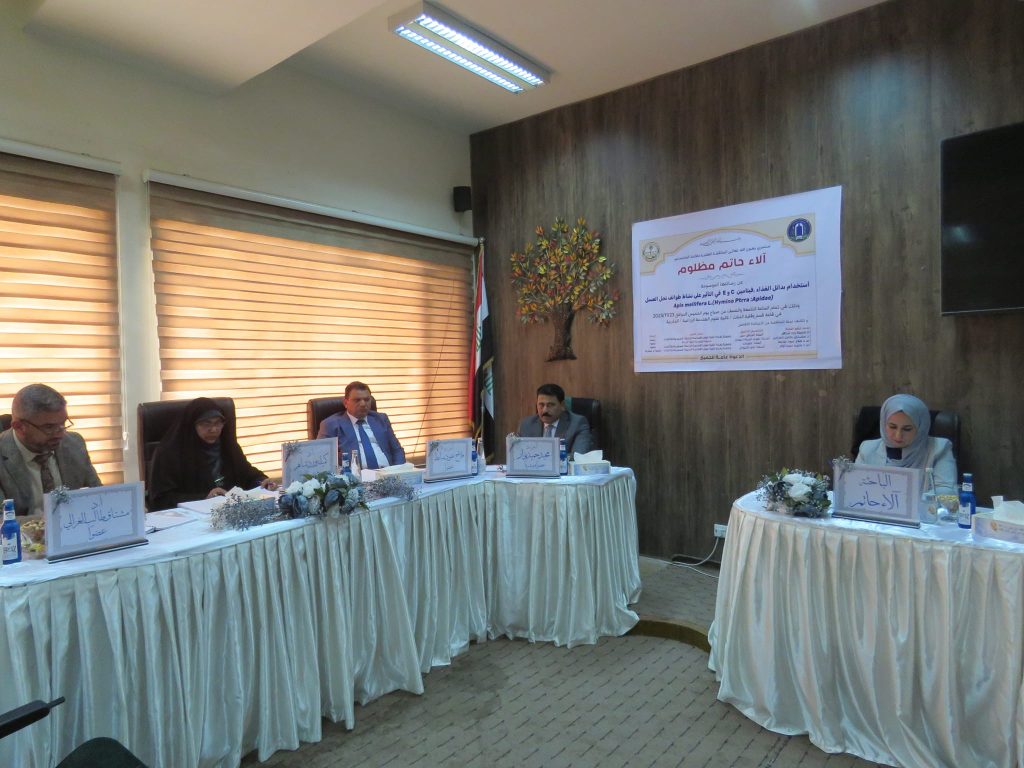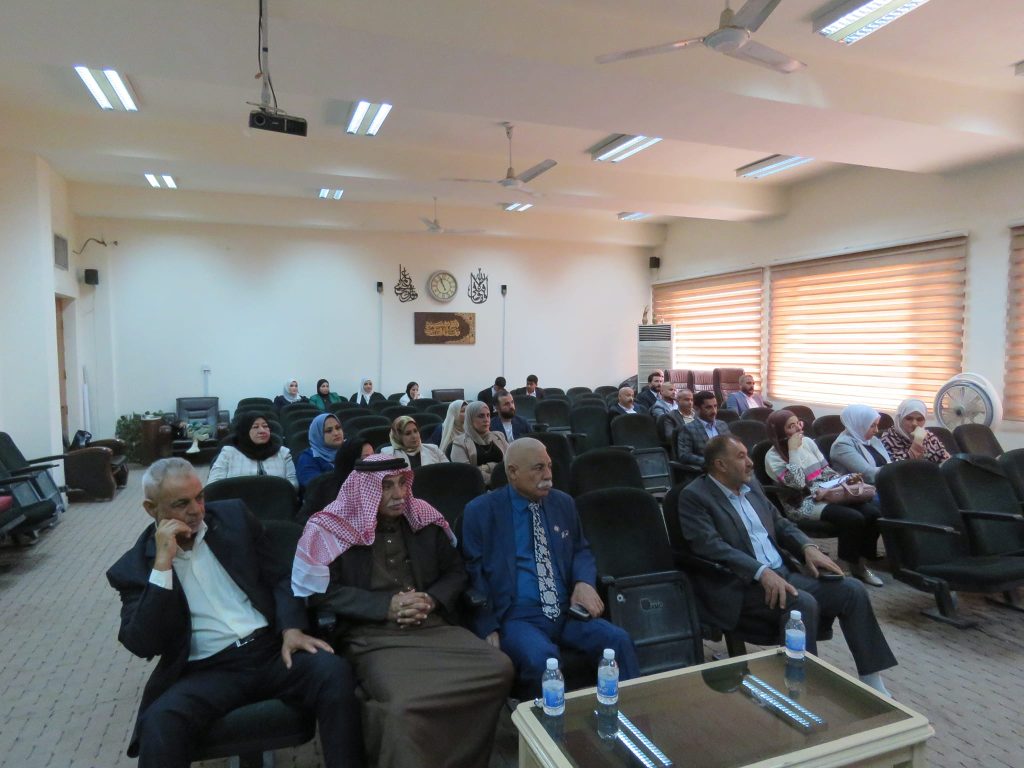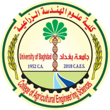A defence of a master’s thesis entitled “The Use of Food Alternatives, Vitamin C, and E in Influencing the Activity of Honey Bee Colonies” was carried out at the College of Agricultural Engineering Sciences, University of Baghdad, by the student Alaa Hatem Mazloom from the Plant Protection Department.
The study aimed to enhance the efficiency of honey bee egg-laying, worker bee activity, and increase production by using nutritional supplements (super protein, vitamin E, and vitamin C). It also examined their impact on the pollen area, brood area, honey area, bee foraging activity, worker bee weight, the effect of treatments on building wax foundations, and the physiological impact on honey bee workers (growth and development of the sublingual glands).
Through the thesis, the researcher concluded that adding vitamin C and vitamin E to the diet of honey bee colonies is crucial due to its impact on overall activity and productivity. The use of the nutritional supplement super protein as a substitute for pollen in feeding honey bee colonies, especially during the scarcity season, resulted in the preparation of honey bee cells during the fall season with good nutritional stores and bee density. This was achieved by adding vitamins and proteins, emphasizing the expansion of studying the nutritional effects on the sublingual glands, maintaining honey bee colonies primarily, and studying the impact of the size and activity of sublingual glands on different ages of queens and their effects on behaviour and production.




